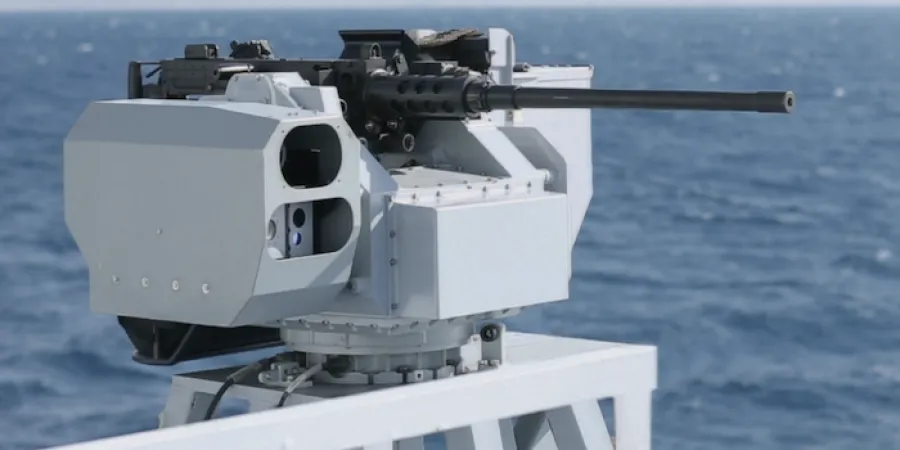Indian Navy, Coast Guard to Equip with Israeli Elbit's Heavy Machine Gun Systems
These units will be equipped with 612 12.7 mm Stabilized Remote Control Guns (SRCG) worth more than $211 million
Eyal Boguslavsky
|
26/02/2024
Indian media reported in Mid-February that the Indian Ministry of Defense has signed a contract with Advanced Weapon Equipment India for the manufacturing and supply of 463 indigenously manufactured 12.7 mm Stabilized Remote Control Guns (SRCG) for the Indian Navy and Indian Coast Guard.
Ofer Shmueli, the founder of Defense Beacon, says that Israeli Elbit Systems won in December 2013 the Indian MoD 12.7mm Stabilized Remote Control Guns (SRCG) tender worth over $211 million for the purchase of 621 x SRCG along with transfer of technology. The tender included 74 SRCGs in semi-knock-down (SKD) condition, and 74 SRCGs in complete knock-down (CKD) condition while the remaining 463 guns are indigenously produced in India.
This contract aims to enhance the capabilities of both forces to engage small targets effectively, especially in asymmetric environments, day or night.
The first batch of 25 weapons (from the SKD guns) consisting of 15 for the Navy and 10 for the Coast Guard, was manufactured and delivered in July 2021 at the factory Ordnance Factory of Tiruchirappalli through the country's transfer of technology (ToT) initiative with the support of Israel's Elbit Systems.
Shmueli explains that the recent contract for the additional 463 guns signifies the second phase of the SRCG program, wherein full-scale production will be undertaken by the local Indian industry.
Weighing less than 220kgs, the SRCG system is fitted with a 12.7mm M2 NATO standard heavy machine gun, designed to suit marine warfare. The SRCG has a built-in day CCD Camera, thermal imager, and laser range finder systems for observation and tracking targets.
These units will be equipped with 612 12.7 mm Stabilized Remote Control Guns (SRCG) worth more than $211 million
Indian media reported in Mid-February that the Indian Ministry of Defense has signed a contract with Advanced Weapon Equipment India for the manufacturing and supply of 463 indigenously manufactured 12.7 mm Stabilized Remote Control Guns (SRCG) for the Indian Navy and Indian Coast Guard.
Ofer Shmueli, the founder of Defense Beacon, says that Israeli Elbit Systems won in December 2013 the Indian MoD 12.7mm Stabilized Remote Control Guns (SRCG) tender worth over $211 million for the purchase of 621 x SRCG along with transfer of technology. The tender included 74 SRCGs in semi-knock-down (SKD) condition, and 74 SRCGs in complete knock-down (CKD) condition while the remaining 463 guns are indigenously produced in India.
This contract aims to enhance the capabilities of both forces to engage small targets effectively, especially in asymmetric environments, day or night.
The first batch of 25 weapons (from the SKD guns) consisting of 15 for the Navy and 10 for the Coast Guard, was manufactured and delivered in July 2021 at the factory Ordnance Factory of Tiruchirappalli through the country's transfer of technology (ToT) initiative with the support of Israel's Elbit Systems.
Shmueli explains that the recent contract for the additional 463 guns signifies the second phase of the SRCG program, wherein full-scale production will be undertaken by the local Indian industry.
Weighing less than 220kgs, the SRCG system is fitted with a 12.7mm M2 NATO standard heavy machine gun, designed to suit marine warfare. The SRCG has a built-in day CCD Camera, thermal imager, and laser range finder systems for observation and tracking targets.



